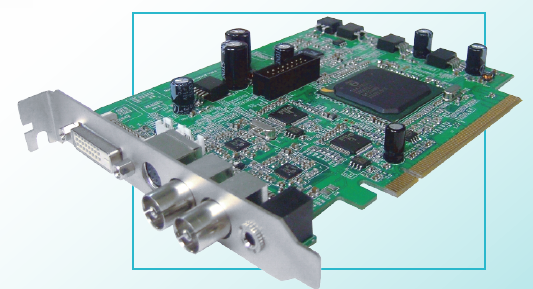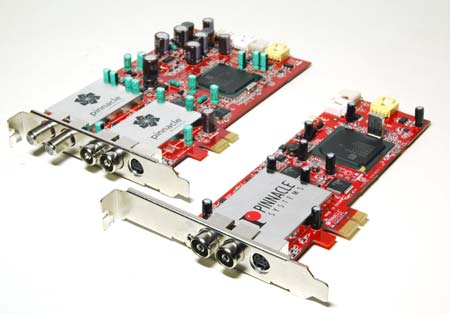Saa7162 devices: Difference between revisions
(→Supported Cards: support update) |
|||
| Line 10: | Line 10: | ||
==Supported Cards== |
==Supported Cards== |
||
Philips announced |
Philips announced in their [http://www.nxp.com/applications/pc_pda/pc_tv/dual_analog_pc_tv_receiver/index.html reference design] that they had already written a Linux driver. In May 2007, they finally sent the code to [http://www.interlink.com.au/rad/quattros Richard Dale] and Manu Abraham, who are now writing a GPL'd driver under NDA. See the [http://www.linuxtv.org/pipermail/linux-dvb/2007-May/017856.html full discussion on linux-dvb]. |
||
While development has progressed, it appears that the information available/provided does not fully document some aspects of this chipset, and hence some areas of development have been problematic. Unfortunately, it appears that before NXP will consider providing additional assistance towards Linux driver support for the chipset, they wish to determine whether it is worth their while by gaining some measure of the potential future user base that Linux drivers will actually provide. Representatives from device vendors Azurewave and Hauppauge have outlined that they will try to assist LinuxTV in its effort to obtain more assistance in this matter. [http://www.linuxtv.org/pipermail/linux-dvb/2007-August/019452.html] [http://www.linuxtv.org/pipermail/linux-dvb/2007-August/019463.html]. |
While development has progressed, it appears that the information available/provided does not fully document some aspects of this chipset, and hence some areas of development have been problematic. Unfortunately, it appears that before NXP will consider providing additional assistance towards Linux driver support for the chipset, they wish to determine whether it is worth their while by gaining some measure of the potential future user base that Linux drivers will actually provide. Representatives from device vendors Azurewave and Hauppauge have outlined that they will try to assist LinuxTV in its effort to obtain more assistance in this matter. [http://www.linuxtv.org/pipermail/linux-dvb/2007-August/019452.html] [http://www.linuxtv.org/pipermail/linux-dvb/2007-August/019463.html]. |
||
Revision as of 02:44, 5 August 2007
Introduction
In March 2005, Philips Semiconductors announced "the industry's first integrated PCI Express dual global video and stereo decoder for digital home PC desktops and notebooks" (press release). The new analog decoder chip, the saa7162, uses the increased bandwidth of the PCI Express bus to capture to two simultaneous analog channels of live tv or baseband video (cf. product flyer) or up to four independent simultaneous digital TV streams (cf. Philips/NXP SAA7162 product brief).
In Oct 2006, NXP created a saa7162 product page that includes, amongst other information, an 18 page "preliminary short data sheet" for download: SAA7162 Product Description.
The PCI-SIG lists SAA7162 (dual A/V decoder) and SAA7160/SAA7161 (multimedia A/V bridge) as PCIe devices. According to PCIe specs there are two types of PCIe devices; Type 1, which categorize normal PCIe bridge devices, and Type 0, which categorize devices which have a specific/customized programmable interface. Unfortunately, the PCIe spec is not very detailed when it comes to Type 0 devices, and it is indeed this category that the SAA7160/1/2 reside.
Supported Cards
Philips announced in their reference design that they had already written a Linux driver. In May 2007, they finally sent the code to Richard Dale and Manu Abraham, who are now writing a GPL'd driver under NDA. See the full discussion on linux-dvb.
While development has progressed, it appears that the information available/provided does not fully document some aspects of this chipset, and hence some areas of development have been problematic. Unfortunately, it appears that before NXP will consider providing additional assistance towards Linux driver support for the chipset, they wish to determine whether it is worth their while by gaining some measure of the potential future user base that Linux drivers will actually provide. Representatives from device vendors Azurewave and Hauppauge have outlined that they will try to assist LinuxTV in its effort to obtain more assistance in this matter. [1] [2].
This means that a Linux driver for the saa7162 is still yet to be released. Hopefully the remaining issues with the chipset can be resolved soon and then device level support for PCIe cards incorporating the sa7162 can begin.
Examples of saa7162 Based Cards
DNTV PCI Express cards
- DNTV Live! Dual Hybrid PCI Express (a rebadge of the FlyTV Express X1 MST-T2A2EX, see below)
- DNTV Live! QuattroS PCI Express
See v4l discussion.
FlyTV Express cards
Philips PCV290
Dual DVB-T and Dual DVB-S Reference Design
Uses 2xTDA8263 DVB-S Tuner, 1 x TDA10093 Dual Channel DVB-S channel decoder, 2xTDA8275A DVB-T Tuner, 2xTDA10046A DVB-T channel decoder, 1xSAA7162E TV video/audio decoder/PCI express interface)
KWorld PCI Express Hybrid
An early example of a card that uses the saa7162 decoder chip is this hybrid card, which also supports Intel's serial digital video out (SDVO):
See product page.
(Someone needs to tell them it's hybrid, not hybird!)
ViXS Diamond Reference Design
In August 2005, ViXS Systems announced the Diamond PCI Express TV tuner reference design. The design provides for analog and hybrid (analog/digital) video processing, combining ViXS' XCode II-L Dual MPEG Encoder with Philips' SAA7162 Dual Video Decoder and Philips' TV tuner (press release).
Pinnacle PCTV Dual Hybrid Pro
Tuner cards from Pinnacle with PCI Express x1, e.g. PCTV Dual Hybrid Pro PCI-e
Pinnacle PCTV Dual Analog + DVB-T + DVB-S: Two FM, DVB-T, DVB-S, analog TV recievers. Chips used: Philips SAA7162, Philips TDA8275A, Zarlink ZL10313 (for DVB-S).
Pinnacle PCTV Dual Hybrid Pro PCI-e: Low profile card, Two FM, DVB-T, analog TV recievers. Chips used: Philips SAA7162, Philips TDA8275A.
Examples of saa7160e Based Cards
Creatix CTX975
PCIe DVB-T receiver in a 34 mm Express Card design.
See product page and specifications.

